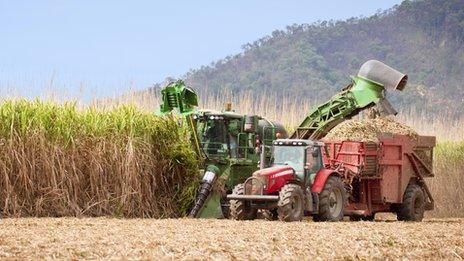Australia plans fees for foreign property investors
- Published
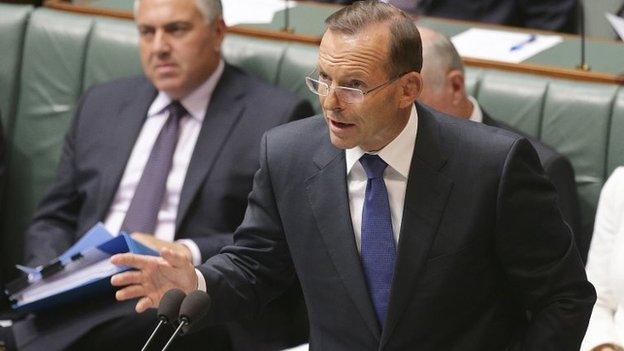
Prime Minister Tony Abbott said the government wants Australians to operate on "a level playing field"
Foreign investors may have to pay large fees before buying Australian residential real estate or businesses, the government has announced.
PM Tony Abbott said the government was proposing a range of civil penalties and fees linked to foreign investment.
Property prices are a hot button issue in Australia, especially in Sydney, and there are claims foreign investment is artificially boosting house prices.
But Mr Abbott conceded there was not enough data on this issue.
He also ruled out reviewing Australia's negative gearing rules, which some property analysts say also fuel property prices.
Negative gearing is when an investment generates a negative cashflow and allows the investor to claim tax deductions.
'Level playing field'
The proposals follow announcements earlier this year by the government that it was tightening the rules for foreign investment in agricultural land.
Under the new proposals, a foreign investor who wants to buy Australian property worth up to A$1m ($785,000, £508,000) would have to pay a A$5,000 application fee to the Foreign Investment Review Board (FIRB).
Investments over A$1m will incur a A$10,000 fee for every extra million dollars in the purchase price.
An application to buy a business worth A$1bn or more would incur a A$100,000 fee.
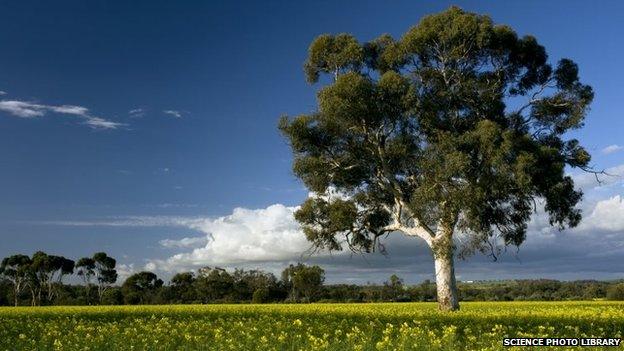
The government has said it is tightening the rules for foreign investment in agricultural land
Foreign investors found to be in breach of the rules would be fined up to 25% of the value of the investment and could be forced to sell the property.
A register will be established to record how many foreign residential and agricultural property owners are in Australia and who they are.
The government said Australia's foreign investment policy for residential real estate had been designed to increase Australia's housing stock but a lack of compliance and enforcement of the rules in recent years had threatened the integrity of the policy.
"We do want Australians to be operating on a level playing field," Mr Abbott said of the property market.
"This government is determined to ensure that the aspirational people of our country get the fairest possible go," he said.

Analysis, Tim Harcourt, JW Nevile Fellow of Economics at UNSW Australia Business School.
Fears about foreign investment in property, particularly Chinese investment, have prompted the Australian government's proposed changes to its foreign investment regime.
There are perceptions in the community that young Australians are being priced out of the market by offshore speculative investors.
This is probably the biggest foreign investment debate in Australia apart from Chinese investment in farm land. But many "foreign buyers" are actually Australians of Chinese or Indian descent.
The government says the new rules will "even up the playing field" but that avoids the fact that most young home buyers are being outbid by cashed-up Australian baby boomers.
Short-term speculation may cool but big investors can afford the fees. Smaller players looking for long-term investment for their children or residency and citizenship will see it as a price worth paying to improve the outlook for future generations.

"The only foreigners that will be in the system will be those playing by the rules."
Applications by foreign investors to buy Australian property or businesses are currently free.
The fees outlined by the government are much higher than those recommended in a report by a parliamentary economics committee.
Submissions on the proposals are being accepted by the Treasury until 20 March, and the government will make a final decision some time after that.
From 1 March, the FIRB screening threshold for purchases will be reduced from the current level of A$252m to A$15m, with a foreign ownership register of agricultural land also due to be established.
- Published29 October 2014
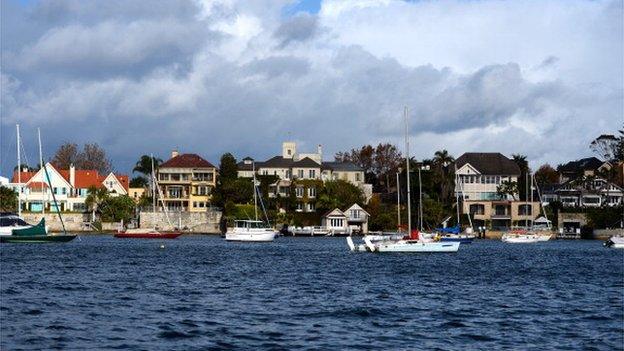
- Published11 February 2015
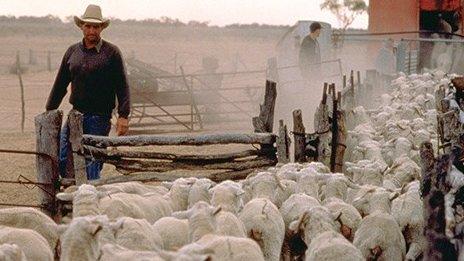
- Published31 October 2013
